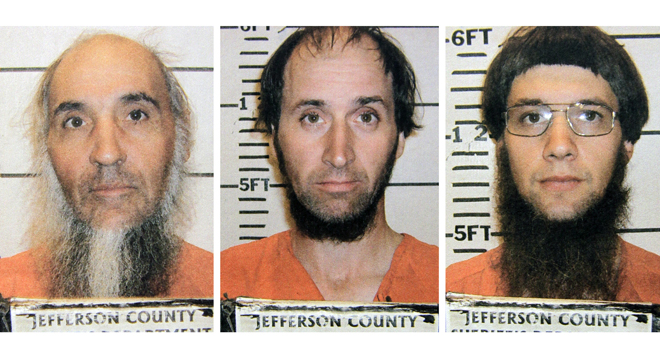The federal prosecution of a gang of Amish beard cutters who allegedly assaulted other members of their religion demonstrates the Justice Department has overstepped its bounds, according to a conservative law firm that has intervened in the case.
The Center for Individual Rights, a conservative non-profit law firm which has fought against affirmative action programs and defended James O’Keefe, filed an amicus brief in U.S. v. Samuel Mullet et al last week. The center argues that the circumstances of the Mullet case don’t meet the requirements of the hate crimes act and should be prohibited by the Religious Freedom Restoration Act.
Mullet, the leader of the breakaway Bergholz Amish clan in Ohio, has been charged alongside eleven co-defendants in a plot to forcibly cut the beards of fellow Amish men for a decision overturning a series of excommunications dealt out by Mullet. All have pleaded not guilty and are challenging the constitutionality of the hate crimes act.
“The fact that it was one group of Amish against another group of Amish just suggests to us that the original design or purpose that Congress may have had in passing this law — which I think is to truly get at bias that is motivated by animus towards an entire group as opposed to a small group of individuals, which I think is what is involved here — may not be properly served in this particular prosecution,” Center for Individual Rights general counsel Michael E. Rosman told TPM.
Rosman, who decided to get involved in the case after a colleague forwarded along DOJ’s announcement of the prosecution, said that an assault like this would have been better handled by the state officials who allowed the feds to take up the Mullet case.
“The mere fact like they don’t feel like it or want to see the feds in action is not a particularly strong reason, in my view, to justify the prosecution,” Rosman said.
Rosman also argues that the Mullet case shouldn’t have raised federal scrutiny because the activity did not have a substantial impact on interstate commerce. The feds had argued they could get involved under the Commerce Clause because the battery-powered hair clippers and sheers used in the attacks came from out of state and because the accused hired drivers to transport them to and from the location of their alleged assaults.
“Congress put in these hooks but it’s hard to believe that Congress was really worried about a scissors going across state lines 15 years ago, when what’s happening here and what’s being addressed by the statute — in many other cases — very serious violent crimes,” Rosman said. “Congress doesn’t have a general police power to regulate violence.”
The Center also argued that the prosecution shouldn’t go forward under the Religious Freedom Restoration Act.
“By the indictment’s own allegations, defendants here were engaged in conduct that they believed were required by their religious leader and his interpretation of scriptures,” the filing reads. “And while the government has, of course, a compelling interest in the prevention of serious physical attacks, [the Religious Freedom Restoration Act] requires that it have a compelling interest in the specific application of the rule to the defendants.”
Although the Center for Individual Rights “does not condone any assault, it must be acknowledged that the assaults alleged here did not involve grave bodily injury; thus the government’s interest must be deemed less than it would be in such cases,” the filing stated.
The Justice Department, meanwhile, has asked a judge to allow it to respond to the Center for Individuals Rights’ amicus brief and what they said were “erroneous factual assertions regarding the substance of the indictment.”
A jury trial has been scheduled for August 27, 2012.






